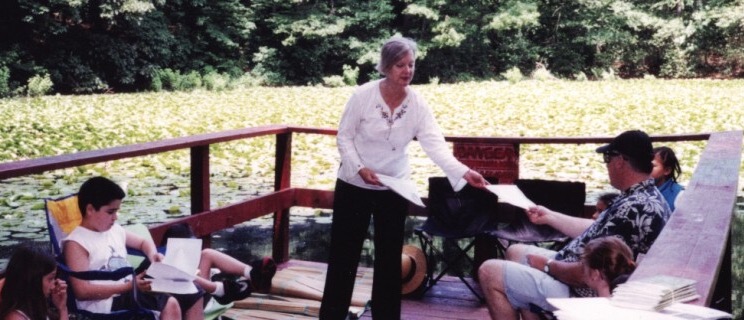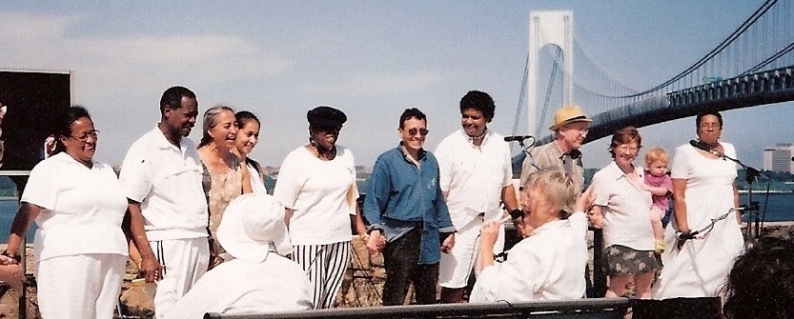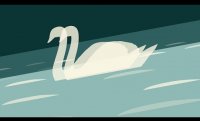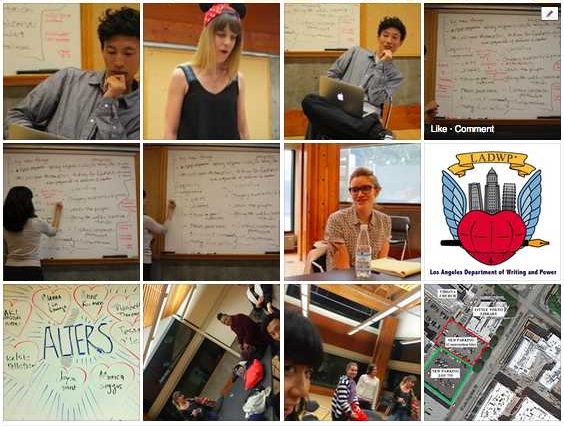Beth Gorrie volunteers her time as Executive Director of Staten Island OutLOUD. She spearheads the organization’s program planning and has adapted over twenty-five global classics for OutLOUD’s spoken-word performances. As an actor during the first few years of her working life, she performed with the Chicago Theatre of the Deaf and served as an Adjunct Instructor at the University of Chicago. In New York City, she appeared in a variety of Off-Off Broadway productions and in a series of film installations by award-winning filmmaker William Lundberg, a recipient of the Guggenheim Fellowship. Gorrie attended Columbia University Law School where she was an editor of the Journal of Law & Social Problems, and spent a summer in rural India on a human rights fellowship. She is a former partner in a leading New York law firm and has participated in community service in Harlem.

What makes your programs unique?
Staten Island OutLOUD gathers neighbors to explore global literature together, and to share ideas. Our first event took place shortly after September 11, 2001 when we had a deep need to gather together.
Since then, Staten Island OutLOUD has grown and has continued that spirit with a varied series of grassroots gatherings. Throughout the year, we host free events to explore global literature, our diverse backgrounds, our history, and our mutual concerns. OutLOUD is entirely volunteer-driven.
We operate on a small budget, but we’re very productive. Since our establishment in September 2001, we’ve served over 23,000 participants with over six hundred free events, in twenty-one languages.
What recent project have you been especially proud of, and why?
From September 2014 through March 2015, Staten Island OutLOUD hosted a series of forty community events about Harper Lee’s novel To Kill a Mockingbird. When we started planning our series a year earlier, we never guessed how timely it would be, following the July 2014 death of Eric Garner, an African-American neighbor of ours who died in police custody.
Our “Mockingbird” series explored national and local civil rights history, together with music and poems from the Civil Rights Movement, and from the Depression years in which the novel is set.
Tensions ran high during the months after Garner’s death, but our series fostered thoughtful discussions. Staten Islanders talked, listened, and considered the many facets of the crisis.
What’s the most memorable thing that’s happened at an event you’ve hosted?
Adults with special needs sometimes attend Staten Island OutLOUD programs. At one event when we discussed a variety of twentieth-century poems, a woman with mental disabilities gathered her courage to comment on a poem by Dylan Thomas. She had never spoken in public before, and she knew that the audience included teachers, attorneys, and other professionals. Everyone encouraged her, and as she spoke, she began to hold herself more confidently, and her voice grew stronger. Everyone was moved when she read, “Do not go gentle into that good night.”
What are the benefits of writing workshops for special groups?
Staten Island OutLOUD’s work proves that when people have a forum and a stimulating entrée for conversation, they respond thoughtfully. Stereotypes can fade and real communication can begin. Our work with teens and with elders underscores the value of writing workshops for those members of our community. Our writing workshops have enabled people to find their unique voices. For teens who may have manifested behavior problems before they began our workshops, some of those problems began to ebb as they focused their energy on writing and as they gained confidence in their work. Elders who had never done any creative writing before participating in our memoir and poetry workshops have drawn real satisfaction in exploring their writing talent, in reflecting on their life experiences, and in recognizing how powerful their pens can be.

Photo: (top) Beth Gorrie at Huckleberry Finn at High Rock workshop. Photo: (bottom) Cast of Moby Dick marathon reading. Photo Credit: Staten Island OutLOUD.
Support for Readings & Workshops in New York City is provided, in part, by public funds from the New York State Council on the Arts, and the New York City Department of Cultural Affairs, with additional support from the Louis & Anne Abrons Foundation, the Axe-Houghton Foundation, the A.K. Starr Charitable Trust, and the Friends of Poets & Writers.








 Submit a story of up to 3,500 words with a $30 entry fee, which includes a subscription to the Malahat Review, by May 1 via e-mail to
Submit a story of up to 3,500 words with a $30 entry fee, which includes a subscription to the Malahat Review, by May 1 via e-mail to 
 We had a dynamic, talented, and punctual group. It was a pleasure to discuss personal creative journeys, hear the mix of angst, frustration, wisdom, confidence, and steady determination that characterized each person. The group had great discussions about what makes a “healthy writer” versus what makes a “happy writer.”
We had a dynamic, talented, and punctual group. It was a pleasure to discuss personal creative journeys, hear the mix of angst, frustration, wisdom, confidence, and steady determination that characterized each person. The group had great discussions about what makes a “healthy writer” versus what makes a “happy writer.” For the National Translation Awards, publishers and translators are invited to nominate translations from any language into English. The Lucien Stryk prize accepts nominations of book-length translations of Asian poetry or Zen Buddhist texts into English. The NTA and Lucien Stryk prizes are sponsored by the American Literary Translators Association (ALTA) to support the organization’s goal of advancing the quality and art of literary translation.
For the National Translation Awards, publishers and translators are invited to nominate translations from any language into English. The Lucien Stryk prize accepts nominations of book-length translations of Asian poetry or Zen Buddhist texts into English. The NTA and Lucien Stryk prizes are sponsored by the American Literary Translators Association (ALTA) to support the organization’s goal of advancing the quality and art of literary translation. The winner in fiction is Anthony Doerr for All the Light we Cannot See (Scribner). The finalists were Richard Ford’s Let Me Be Frank With You (Ecco), Laila Lalami’s The Moor’s Account (Pantheon), and Joyce Carol Oates’s Lovely, Dark, Deep (Ecco). The winner in poetry is Gregory Pardlo for Digest (Four Way Books). The finalists were Alan Shapiro’s Reel to Reel (University of Chicago), and Arthur Sze’s Compass Rose (Copper Canyon Press).
The winner in fiction is Anthony Doerr for All the Light we Cannot See (Scribner). The finalists were Richard Ford’s Let Me Be Frank With You (Ecco), Laila Lalami’s The Moor’s Account (Pantheon), and Joyce Carol Oates’s Lovely, Dark, Deep (Ecco). The winner in poetry is Gregory Pardlo for Digest (Four Way Books). The finalists were Alan Shapiro’s Reel to Reel (University of Chicago), and Arthur Sze’s Compass Rose (Copper Canyon Press).